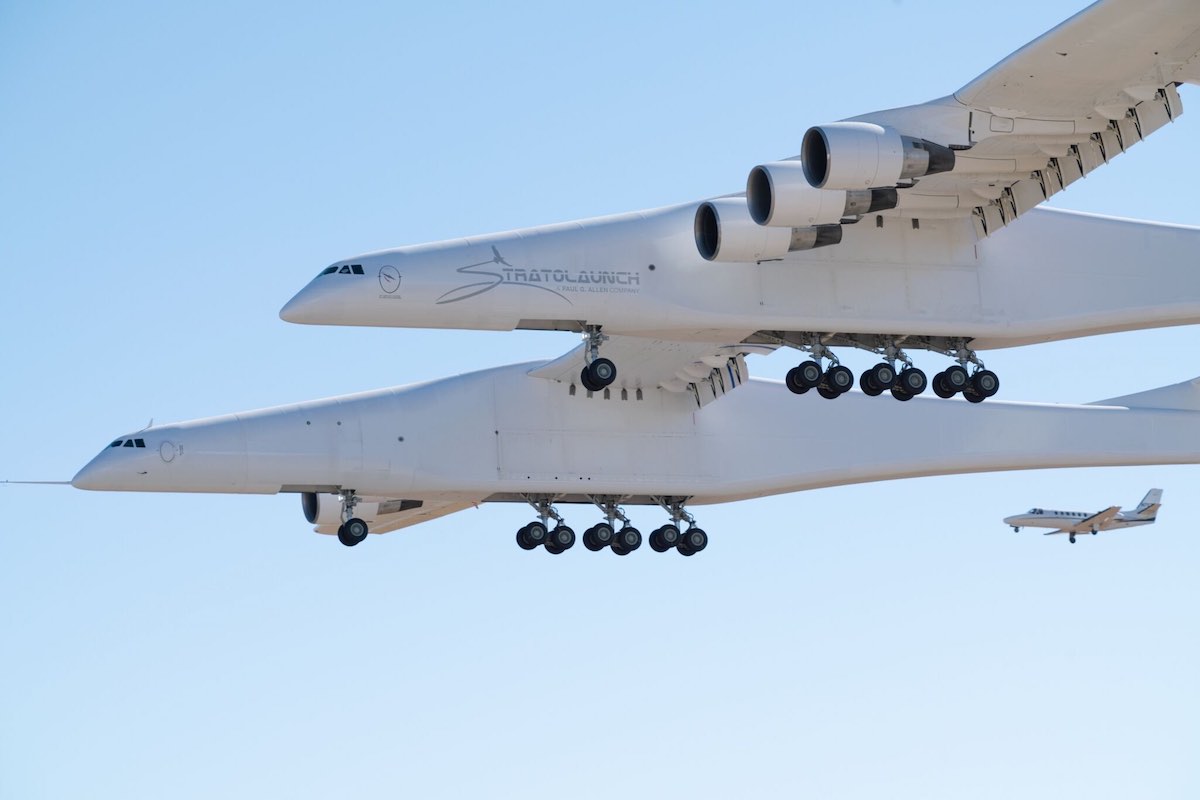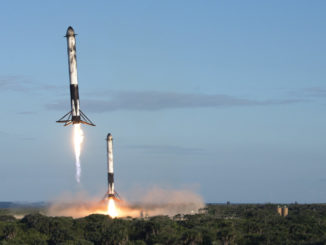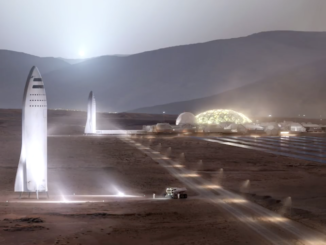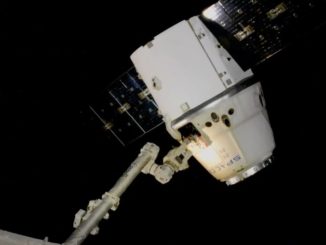
Stratolaunch said Friday that the company has “transitioned ownership” a year after the death of Paul Allen, the company’s billionaire founder who funded the construction of the world’s largest airplane for an airborne satellite launcher.
The company offered few other details in a statement released to media Friday. It was the first official update on the status of Stratolaunch since its huge rocket carrier aircraft completed its first — and so far only — test flight in April.
“Stratolaunch LLC has transitioned ownership and is continuing regular operations,” the company said in a statement. “Our near-term launch vehicle development strategy focuses on providing customizable, reusable, and affordable rocket-powered testbed vehicles and associated flight services.
Stratolaunch did not identify its new owner Friday, or details on the type of launch vehicle it seeks to develop.
Allen’s holding company, Vulcan Inc., was Stratolaunch’s previous owner. Allen, a co-founder of Microsoft, died last October. Paul Allen’s sister, Jody Allen, currently oversees Vulcan’s holdings.
“As we continue on our mission, Stratolaunch will bring the carrier aircraft test and operations program fully in-house,” the company said. “We thank Vulcan Inc. and Scaled Composites for turning an ambitious idea into a flight-proven aircraft.”
Stratolaunch said it would not provide additional information on the company’s status, or grant media interviews.
The gigantic twin-fuselage jet built for the Stratolaunch venture completed a test flight April 13 over the Mojave Desert of California. The aircraft has been inside a hangar at Mojave Air and Space Port since the April test flight, amid reports that Stratolaunch’s assets were for sale, or the company was closing entirely.
Stratolaunch purchased two Pegasus XL satellite launchers from Northrop Grumman to conduct demonstration flights using the company’s carrier aircraft, nicknamed “Roc,” as soon as 2020. Those plans have been shelved, and a Northrop Grumman official said earlier this week that the company has bought the two Pegasus rockets back from Stratolaunch.
Northrop Grumman is also owner of Scale Composites, which designed and built the Stratolaunch carrier aircraft. The flying launch pad is powered by six engines and has a wing span of 385 feet, or 117 meters.
The air-launched Pegasus rocket has flown 44 times since 1990. It’s dropped from Northrop Grumman’s own carrier jet, a modified L-1011 named “Stargazer.”
Stratolaunch had said its larger carrier aircraft could accommodate up to three Pegasus rockets on a single flight, while the L-1011 carries one at a time.
Stratolaunch said in January — when it was still under Vulcan’s ownership — that it was suspending its internal efforts to develop its own family of air-launched rockets to enter service after the Pegasus demonstration launches.
Stratolaunch originally wanted to launch satellites using SpaceX-built rockets from the giant aircraft, then partnered with Orbital Sciences to develop a new air-launched booster. In 2016, Stratolaunch said it would instead use Orbital’s existing Pegasus rockets for initial launches from the new carrier airplane.
Last year, Stratolaunch announced a roadmap for its own rocket family, before halting those plans in January after Allen’s death.
Email the author.
Follow Stephen Clark on Twitter: @StephenClark1.



